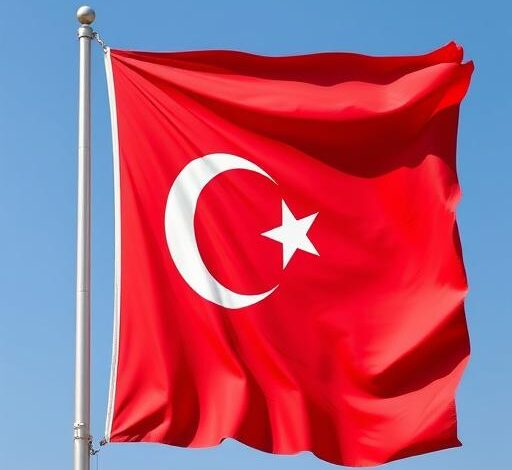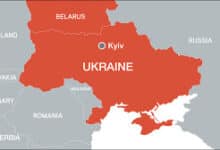Erdoğan Mobilizes State Agencies to Combat Illegal Online Gambling Across Turkey

President Recep Tayyip Erdoğan has embarked on an unprecedented nationwide initiative aimed at eradicating illegal online gambling across Turkey. This comprehensive two-year government strategy mobilizes various state institutions to dismantle financial channels, disrupt technological platforms, and shut down media outlets that promote unlicensed betting activities. The bold move underscores a firm political resolve to address a growing social and economic menace.
The formal enactment of the Action Plan for Combating Illegal Betting, Games of Chance, and Gambling in Virtual Environments (2025-2026) was published in the Resmi Gazete on November 1. Central to the document is the acknowledgment that illicit gambling has destabilized family units, fueled financial crimes such as money laundering, and increased addiction risks among youth. Erdoğan’s signature on the plan signals a clear commitment from the highest levels of government to achieve tangible results within the next two years.
The rising concern over youth gambling and addiction has intensified public discourse. Health organizations and media outlets have raised alarms about minors accessing illegal betting platforms. Even traditionally pro-government outlets like Sabah and the Albayrak Media Group have recognized the widespread vulnerabilities. According to Yeşilay, an influential health NGO, gambling now accounts for over a quarter of addiction consultations nationwide. Confronted with these alarming statistics, Erdoğan publicly expressed his “shame” that such a problem has been allowed to fester and vowed that Turkey would not enter the 2027 election cycle with online gambling still unchecked.
Despite increased law enforcement efforts in 2025, illegal operators have proven remarkably resilient and technologically savvy. Authorities have blocked hundreds of unlicensed sportsbooks and crypto casinos, only for these platforms to reappear through mirror domains, influencer marketing, and alternative payment systems. The Papara scandal emerged as a significant case, revealing that over ₺12.9 billion (€340 million) in illicit transactions had passed through tens of thousands of accounts. Investigations by MASAK and the National Intelligence Organization suggest that they now understand the structural networks targeting Turkish consumers but warn that domestic enforcement alone may not suffice to stem the tide.
To effectively combat this menace, the government has established a new enforcement framework led by MASAK, which will coordinate efforts across ministries, regulators, and law enforcement agencies. Cybercrime units within the Ministry of Interior are tasked with taking direct action against digital platforms and promotional channels. Meanwhile, the Information and Communication Technologies Authority (BTK) is expanding its authority to swiftly block websites, social media apps, and streaming services linked to illegal gambling. The Ministry of Treasury and Finance will implement tighter controls on payment flows and anti-money laundering measures, while the Ministry of Justice will focus on prosecuting gambling-related offenses to accelerate legal proceedings. Additionally, the Directorate of Communications is charged with preventing promotional activities, advertising, and influencer campaigns that facilitate illegal gambling. Collectively, these efforts aim to restore control over the online gambling space through what the circular describes as a “comprehensive, nationwide effort.”
The circular also issues stern warnings to domestic companies in the media, technology, and fintech sectors. Authorities argue that platforms accepting advertising revenue from illegal operators, failing to remove promotional content, or offering unregulated payment channels effectively enable the black-market gambling economy. Firms that do not comply may face operational penalties, license reviews, or restrictions imposed by BTK. On the international front, Turkey plans to pressure foreign jurisdictions—including Malta, Montenegro, Cyprus, North Macedonia, and Georgia—that are suspected of hosting or tolerating operators targeting Turkish consumers. While Ankara seeks cooperation, it remains prepared to impose sanctions if necessary.
Read also: Mr Green Case Sparks Debate Over Malta’s Article 56A and the Future of Operator Asset Security
Opposition voices criticize the government’s efforts, claiming that the ruling AKP has neglected the issue for over a decade. CHP politician Muharrem İnce dismissed the plan as “political theatre,” arguing that online gambling could have been shut down swiftly in the mid-2010s if there had been genuine political will. Critics from other parties, such as Yenilik Partisi, suggest that the crackdown might conceal sensitive financial relationships within Turkey’s business circles rather than genuinely addressing the problem.
This initiative comes at a crucial juncture for Erdoğan, as his approval ratings are under strain amid economic instability, soaring inflation, and volatile currency rates. Earlier protests in Istanbul, sparked by the arrest of Mayor Ekrem İmamoğlu, further challenged the government’s authority. In this context, the crackdown on illegal online gambling is seen not only as a public welfare measure but also as a strategic move to reinforce political control. For critics, it reflects an attempt by Erdoğan to regain momentum after a turbulent year; for supporters, it signifies a steadfast commitment to social protection. Regardless of perspective, Turkey’s 2025–2026 campaign against illegal online gambling will be closely observed both domestically and internationally as the government seeks to secure a decisive victory over this pervasive digital threat.













